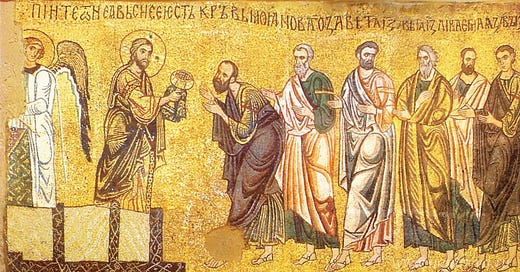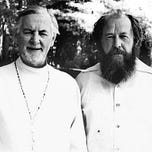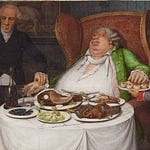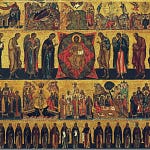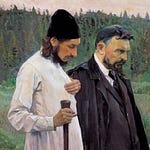Behold, how good and how pleasant it is for brethren to dwell together in unity! - Psalm 133:1
In his excellent writings on the Liturgy, Father Alexander Schmemann once described a principle of correlation or concelebration which brings the laity into the equation of the Liturgy and strikes at the very heart of clericalism. Clericalism, at least as it exists in the Russian Church, seems to elevate ordained priests to some strange position within the Church. People appear to be convinced that priests are not normal humans, that they have some special “superpowers” acquired through ordination, that the “Divine grace” of the ordination prayer is a special kind of grace not available to the uninitiated, and that the ordained are very much separate from the rest of the faithful - as if they were some alien beings. While these ideas may be correct in a superficial way that is generally applicable to many professional occupations - priests do enjoy a certain level of guildic ‘separatness’ - these ideas are wrong fundamentally.
Father Alexander Schmemann (center) with his wife, Matushka Juliana (left), and Alexander Solzhenitsyn (right).
What clericalism breeds with respect to the Liturgy is an attitude that the Liturgy is something that the priest does. The priest becomes a provider of services, and people come to consume these services: watch the Liturgy, pick up some holy water and blessed bread, receive Communion, submit some names on a piece of paper, order a memorial service for grandma, etc. The very language that has come into use in the Church highlights this consumer attitude: people “order” various services; in fact, often they call and expect to be able to place their order over the telephone. And the most common question is, sadly, ‘how much does it cost?’ People want to know the price and decide whether the ‘product’ is worth it. They can always shop around and look for a better deal. To be sure, many people do have an understanding that they must participate in the life of the Church: when they submit a list of names for commemoration at the divine Liturgy, ideally, it is the same list that they use in their daily private prayers; when they ask for a memorial service they expect to be there praying together with the priest, etc. Yet many still seem to treat the Church as a boutique shop of spells and amulets and the priest as a shaman who dispenses them.
Listen to this episode with a 7-day free trial
Subscribe to Phroneo to listen to this post and get 7 days of free access to the full post archives.

